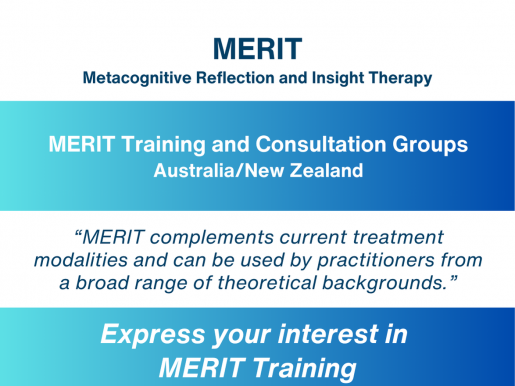MERIT: Metacognitive Reflection and Insight Therapy Training
$0.00
Metacognitive Reflection and Insight Therapy (MERIT) is a form of integrative individual psychotherapy that seeks to assist adults diagnosed with psychosis to make sense and meaning of the challenges and possibilities in their lives and to find ways to manage these and direct their own recovery.
Building from advances in both cognitive and interpersonal research, MERIT seeks to expand the boundaries of cognitive-behavioural, personal centered and psychodynamic approaches to treatment by focusing on how persons make sense of their experiences of their own purposes and place in the world allowing the development of a sense of belonging to our larger communities. In contrast to other approaches, MERIT focuses on core processes that should be present in a given session, rather than a predetermined curriculum. This allows for a therapy to be truly tailored to meet the needs of unique individuals in real world clinics while also unlocking therapists’ unique potential for creativity as they seek to jointly make meaning with the person diagnosed with psychosis. These sessions will provide consultation on the implementation of the approach allowing participants to think about how to integrate this approach into their practice. Psychology registrars may be able to count the time toward their supervision requirements.
Specific objectives:
- Articulate the theory underpinning MERIT
- Elicit a client agenda informing the approach
- Demonstrate capacity to attend to your own thoughts in promoting therapist transparency
- Elicit meaningful narrative episodes
- Define and agreeing on problems to be addressed in the therapy
- Develop ways on including the therapist-client interaction as part of the approach
- Elicit the client’s reflections on their aims of the therapy consistent with a recovery model
- Promote metacognition by stimulating the patients to think about their own and other’s thinking
- Simulate the patient’s ability to use knowledge of themself and others to respond to social or psychological problems
